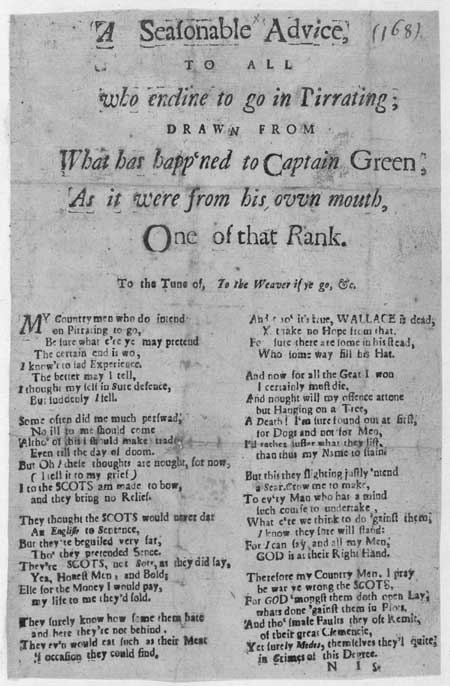Commentary
This report and ballad begins: 'A Seasonable Advice, / TO ALL / who encline to go in Pirrating ; / DRAWN FROM / What has happ'ned to Captain Green, / as it were from his ovvn mouth, / One of that rank. / To the tune of, to the weaver if ye go, &c.' The name of the publisher is not included. Written in a triumphalist tone, this broadside ballad was ghost-written from the viewpoint of the English sea-captain, Thomas Green, who was executed at Leith in 1705 on a trumped-up charge of piracy. Invoking the memory of William Wallace and capitalising 'SCOTS' and 'GOD' throughout the ballad, the anonymous Scottish writer uses Captain Green?s dreadful fate as a warning to other Englishmen not to 'wrong the SCOTS'. Since the context for this tragic story is the failure of the Darien Company and the scheming of unscrupulous politicians participating in the Union negotiations, this broadside might well have been used as anti-Union rhetoric. Early ballads were dramatic or humorous narrative songs derived from folk culture that predated printing. Originally perpetuated by word of mouth, many ballads survive because they were recorded on broadsides. Musical notation was rarely printed, as tunes were usually established favourites. The term 'ballad' eventually applied more broadly to any kind of topical or popular verse.
View Transcription | Download PDF Facsimile
|
 |
Date of publication:
1705 shelfmark: Ry.III.a.10(105)
 View larger image
View larger image
|


